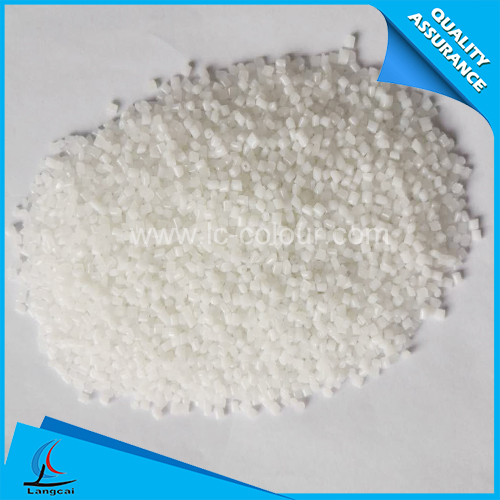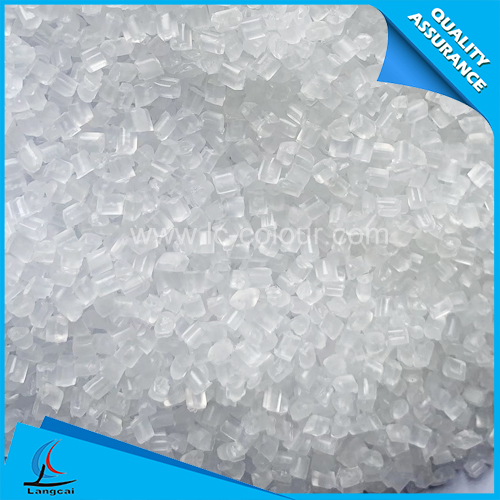- Nonwoven Fabrics
- Tailor Made Masterbatch
- Plastic Masterbatch
- Chemical Fiber Masterbatch
- Functional Masterbatch
- Machinery
- Spunbond PP Nonwoven Masterbatch
- Mono Color Masterbatch
- Liquid Color Masterbatch
- Non-woven Masterbatch
- Polyester Fiber Masterbatch
- Nylon Fiber Masterbatch
- Polypropylene Fiber Masterbatch
- Lab Nonwoven Machine
- Lab BCF Machine
- Dryer
- Filler Masterbatch
- How can the refined cotton industry navigate through the trade fog between China and Japan
- Why choose Mono Color Masterbatches? Three major advantages highlight value!
- The "Symbiotic code" between domestic and overseas markets
- The application advantages of Plastic Masterbatches are remarkable!
- How will the "balanced development of imports and exports" be promoted during the "15th Five-Year Plan" period?
- Why choose Mono Color Masterbatches?
- Phone:00836 - +86-535-8484358
- Email:wendy@ytlc-colour.com
- Address:DALAN INDUSTRIAL PARK, ZHANGXING TOWN, ZHAOYUAN CITY, SHANDONG, CHINA
Increase the local conversion rate of cotton, Xinjiang cotton consumption exceeds 90%
Driven in Xinjiang Aksu Textile Industrial City (Development Zone), it is a standardized factory building. This once-desolate Gobi Desert has become a large-scale textile city with complete infrastructure.
Xinjiang cotton is the representative of domestic high-quality cotton. With the promotion of the “Belt and Road” construction, Xinjiang textile and garment industry has developed rapidly. Some textile and garment enterprises have achieved advanced management through the introduction of advanced equipment, so that the quality of products has been continuously improved. At present, the technological level and equipment level of Xinjiang cotton spinning industry are in the forefront of the country. The development of garment and apparel home textile knitting industry has begun to take shape. Viscose fiber, high-grade cotton yarn, clothing, carpet and other products are continuously exported to Central Asia and European countries.
In the past April, cotton planting in Xinjiang began, and 7.5 million mu
of cotton in the Aksu region of Xinjiang was fully launched. It is understood that this year, the Aksu region will optimize the cotton regional layout and variety structure to achieve a planting cotton planting area of 2 million mu. At the same time, textile and garment enterprises all over the world have also invested in tight and busy production, grabbing orders and releasing production capacity.
To develop the textile and garment industry, Xinjiang has the advantage of resource producing areas. At present, most of the raw materials of cotton-making enterprises in Xinjiang are Xinjiang cotton, and a small part is viscose. The products are mainly ring spinning and rotor spinning, mostly for order production. In the production and processing of cotton spinning enterprises, the cotton consumption in Xinjiang is over 90%, and the increase in the local conversion rate of cotton is finally transformed into an industrial advantage.
For example, the Kashgar region in Xinjiang relies on abundant cotton resources and geographical advantages to attract domestic textile and garment enterprises to invest in Kashgar. At present, there are more than 460 textile and garment enterprises in Kashgar. The production range covers more than 180 varieties of 13 categories including cotton spinning, household textiles, clothing and industrial textiles. The annual output exceeds 700 million pieces of clothing, and the output value exceeds 6.3 billion yuan.
"There are a lot of foreign orders, 90% of the products are exported to Russia, Kyrgyzstan and other countries, including men's and women's professional casual wear, suits, etc." said a person in charge of a clothing company in Xinjiang.
In the export of products, leveraging the “One Belt, One Road” construction, Xinjiang and some neighboring countries have strong complementarity in the textile and garment industry, and industrial and commercial cooperation has broad space. Many enterprises have developed industries along the “Belt and Road” countries. Cooperation.
Fujian Sanjin Technology (Group), which is engaged in the production of viscose fiber, set up a branch in Xinjiang's Xinjiang Textile Industry Incubation Park in Hutubi County in March last year. The person in charge of the company said that the investment environment here has advantages, and plans to increase investment and strive to build high-end products in Xinjiang and sell them to European and American markets.
Shandong Ruyi Holding Group, a leading textile and apparel company in China, has also increased its efforts in Xinjiang in recent years, and its production base has been put into use.
This year, the Xinjiang Uygur Autonomous Region Industrial and Information Department will actively promote the structural adjustment, transformation and upgrading of the textile industry, and focus on supporting the construction of weaving and industrial projects such as clothing, home textiles and knitting, and encourage the export of enterprise products. At the same time, it encourages the use of advanced technology and equipment and intelligent production lines at home and abroad to enhance the innovation capabilities of new technologies, new processes and new products in the whole industry.
It is noteworthy that South Xinjiang is a key area for the development of textile and garment industry in Xinjiang. In August last year, the construction of Aksu Lvshang Textile Town and China Textile Commodity Center was launched. Aksu Huafu 1 million-color textile industrial park and 100,000 tons of dyeing industry The opening of the park began to attract enterprises to settle in. The Aksu region gradually formed a service system from the cotton industry chain, dyeing, color spinning to textile small commodity centers.
Covering an area of 2,150 acres, Aksu Huafu Textile Industrial Park is the world's largest color spinning monomer factory. The park will build a world-leading fashion design, R&D and testing center. After the completion of the Aksu Huafu dyeing industrial park, it will form a year. The ability to produce 100,000 tons of cotton, yarn and fabric dyeing. In the future, in the textile industry sector of Aksu, the dyeing industrial park will become a hub connecting the upstream and downstream enterprises of the textile industry.
According to the "Xinjiang Textile and Apparel Industry Development Plan (2018~2023)", by 2023, Xinjiang will reach a cotton spinning capacity of 20 million spindles, more than 50,000 looms, 250,000 tons of knitted fabrics, and 800 million garments and garments. The employment capacity of the whole industry chain has reached 1 million, of which the employment of the South Xinjiang labor force in the whole industry in Xinjiang has reached more than 650,000. Xinjiang's cotton spinning industry ranks in the forefront of equipment and technology. The coordinated development of textile, chemical fiber and petrochemical industries has basically taken shape, and the development of the textile and garment industry has driven the employment goal of millions of people.
Zhaoyuan Liangcai Plastic Chemical Fiber Factory specializes in the production of standard single masterbatch, Plastic masterbatch, complex masterbatch, chemical masterbatch, Plastic masterbatch, masterbatch, non-woven testing machine, Plastic masterbatch.
- Why choose Mono Color Masterbatches? Three major advantages highlight value!
- How can the refined cotton industry navigate through the trade fog between China and Japan
- The application advantages of Plastic Masterbatches are remarkable!
- The "Symbiotic code" between domestic and overseas markets
- Why choose Mono Color Masterbatches?
- How will the "balanced development of imports and exports" be promoted during the "15th Fi
- What are the prominent advantages of Plastic Masterbatches?
- The opening ceremony of the 9th China Textile Intangible Cultural Heritage Conference was
- Explore the performance optimization and efficient coloring of Mono Color Masterbatches!
- What pressure does the United States' promotion of US-India trade cooperation bring to Chi


